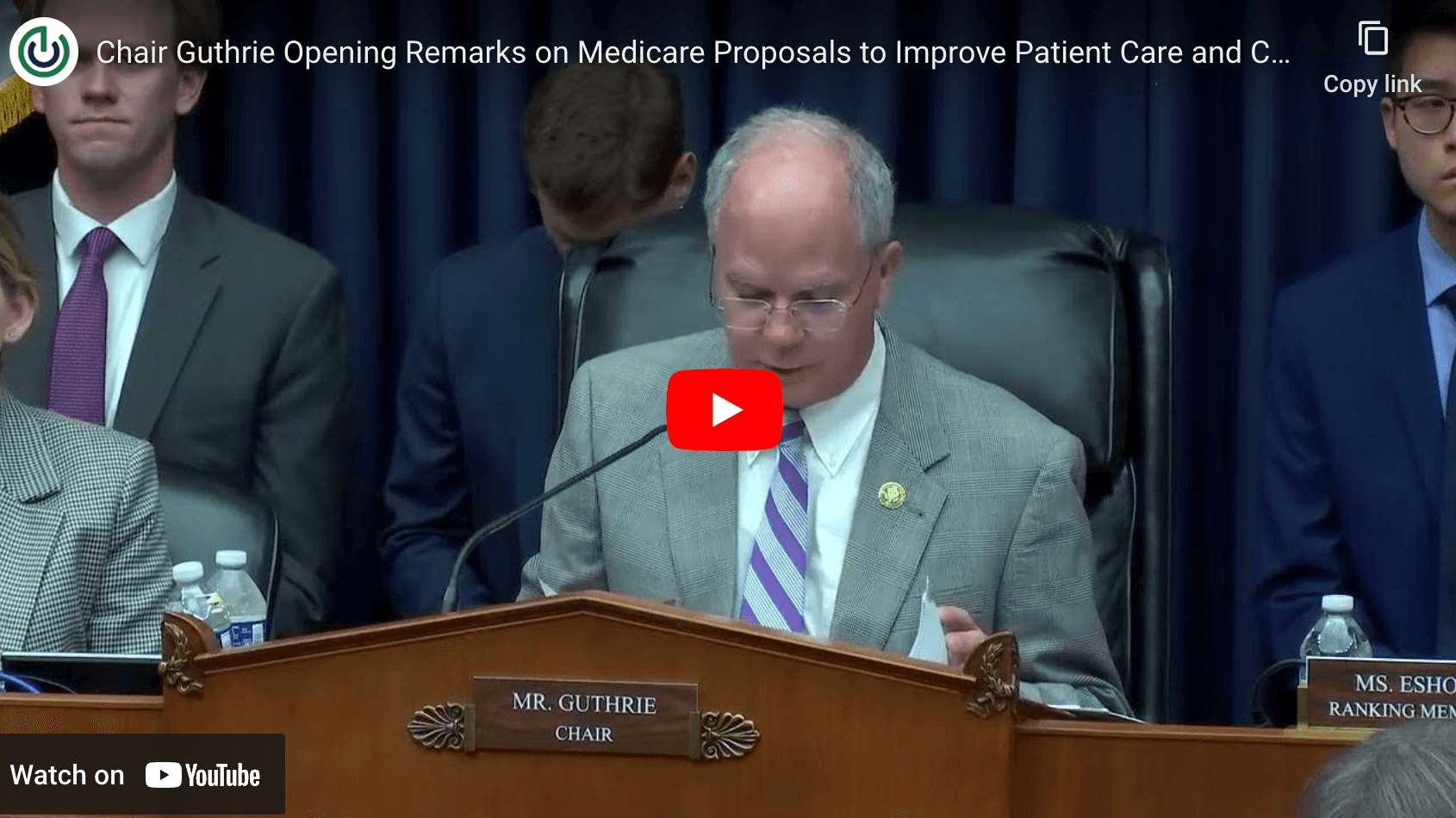Subcommittee Chair Guthrie Opening Remarks on Medicare Proposals to Improve Patient Care & Minimize Red Tape for Doctors
Washington D.C. — House Energy and Commerce Health Subcommittee Chair Brett Guthrie (R-KY) delivered the following opening remarks at today’s hearing titled “What’s the Prognosis?: Examining Medicare Proposals to Improve Patient Access to Care & Minimize Red Tape for Doctors.”
INCREASE ACCESS TO CARE FOR SENIORS
“Today we are considering legislation aimed to provide greater access to care for seniors, including lower cost prescription drugs, as well as reducing unnecessary red tape for health care providers.
“We are also considering proposals designed to make updates to our physician reimbursement models that strike the critical balance between driving higher quality care while ensuring [the] Medicare program remains solvent for future generations.
“According to a September 2023 report [from] the Centers for Medicare and Medicaid Services, spending on health care is expected to grow faster than GDP over the next decade. This is simply unsustainable, especially for our Medicare program.
“The data shows per person health care spending of those over 65 costs on averages almost 2.5 times more than what the average working person spends, with the federal government picking up much of the higher share of the spending.
“This report only further underscores the need for today’s hearing and to examine policies intended to sustain and strengthen the Medicare program.”
TIME TO REEXAMINE FISCALLY RESPONSIBLE PAYMENT POLICIES
“This is the first time in several years that we’ve thoughtfully examined our reimbursement system for physicians, many of whom are providing specialized care for seniors with chronic conditions.
“These conditions also require coordinated care that spans across multiple providers and clinical staff, requiring every targeted reimbursements that incentivize meeting higher quality standards for these patients.
“These are complicated problems, and they require serious solutions. Our goal is figuring out how to preserve best access for seniors in a sustainable and responsible manner.
“This will require constructive work between stakeholders, regulators, and this subcommittee. Any changes we ultimately pursue will be fully offset and promote the highest quality of care for our seniors.”
